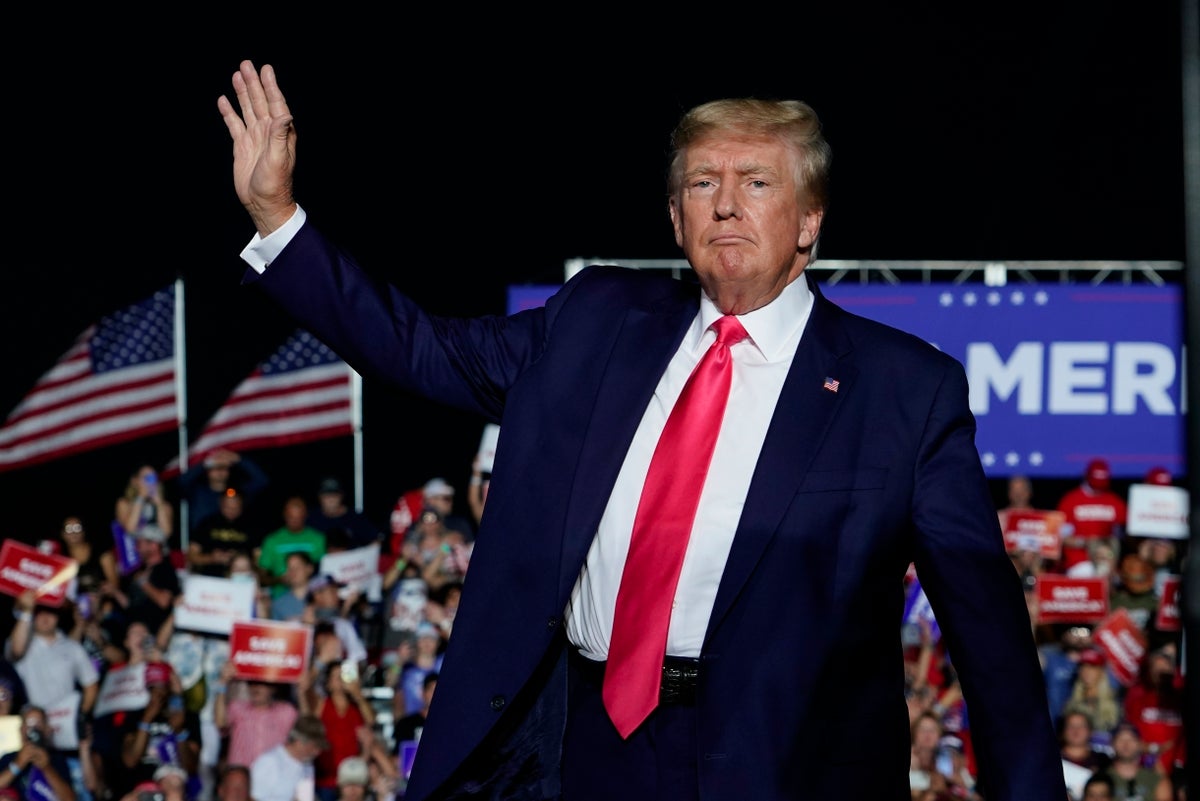
Donald Trump added a third indictment to his list of ever-growing legal troubles on Tuesday 1 August, after a grand jury in Washington DC charged the ex-president with four counts related to Mr Trump’s alleged efforts to overturn the 2020 election and the subsequent January 6 attack on the Capitol.
The four counts, brought forth after an investigation from Special Counsel Jack Smith, accuse the ex-president of conspiracy to defraud the United States, conspiracy to obstruct an official proceeding, conspiracy against rights and obstruction of, and attempt to obstruct, an official proceeding.
Mr Trump pleaded not guilty to all four charges on Thursday, 3 August.
This is the second set of federal charges filed against Mr Trump and the third indictment he’s received this year thus far, adding to the legal pressure against him as he seeks to win the Republican Party’s nomination in the primary next year.
Speculation has mounted whether he will face jail time, should Mr Trump be convicted – raising the prospect of federal prosecutors and judges having to decide whether to jail a presidential candidate or potential victor in the 2024 race.
A statement from Mr Trump’s campaign called the indictment “disgraceful” and “political targeting”.
“The lawlessness of these persecutions of President Trump and his supporters is reminiscent of Nazi Germany in the 1930s, the former Soviet Union, and other authoritarian, dictatorial regimes. President Trump has always followed the law and the Constitution with advice from many highly accomplished attorneys,” the statement from Mr Trump’s campaign read.
Since last year, Mr Trump has been at the centre of the sprawling US Department of Justice probe into his efforts to overturn the results of the 2020 presidential election – separate from an investigation in Atlanta into his attempts to reject the results of that election in Georgia.
That Georgia grand jury probe is expected to result in charges against the ex-president and others in his orbit sometime this month or early September.
The first federal indictment against the ex-president occurred on 8 June, when a grand jury in Mr Smith’s investigation charged Mr Trump and his co-defendant Walt Nauta on 37 counts related to Mr Trump’s alleged unlawful retention of national defence information and obstruction of justice.
Those charges stem from a case that began early last year after National Archives and Records Administration (NARA) officials discovered more than 100 classified documents in boxes that were retrieved from Mr Trump’s Palm Beach, Florida residence.
In this handout photo provided by the U.S. Department of Justice, stacks of boxes can be observed in the White and Gold Ballroom of former U.S. President Donald Trump’s Mar-a-Lago estate in Palm Beach, Florida— (Getty Images)
Each charge carries a maximum sentence ranging from five years to 20 years. A potential sentence, if convicted, could include decades in prison.
The Justice Department is likely to attempt to have Mr Trump incarcerated if he’s convicted.
National security lawyer and George Washington University law professor Kel McClanahan said that the department will probably “want to go for incarceration” in the case of Mr Trump, according to Insider.
Mr McClanahan said that the evidence in the indictment is intended to show that Mr Trump “is a kingpin who knowingly broke the law, endangered national security, endangered nuclear weapon security, [and] endangered other countries’ national security”.
Former US President Donald Trump waves from his vehicle following his appearance at Wilkie D. Ferguson Jr. United States Federal Courthouse, in Miami, Florida, on June 13, 2023— (AFP via Getty Images)
The consensus among most legal experts commenting on the indictment appears to be that Mr Trump is in serious legal jeopardy.
A former assistant US attorney in the Southern District of New York, Sarah Krissoff, said that “to the extent that there’s a conviction here, the Department of Justice is going to want to be seeking a real sentence” because of the “nature of the conduct, how long it lasted, his involvement, the involvement of other people, working allegedly at Trump’s direction”.
She noted that if Mr Trump is convicted, the sentence would depend on the judge, which seems likely to be Trump-appointee Aileen Cannon in the District Court for the Southern District of Florida.
In March, he appeared in a New York City courtroom to face criminal charges following Manhattan District Attorney Alvin Bragg’s investigation into hush payments leading up to the 2016 presidential election.
He has pleaded not guilty in both cases. And after both hearings, he returned to his properties to deliver remarks to crowds of supporters to cast himself as a victim of political persecution, baselessly accusing his political rivals of interfering with his chances of winning election to the presidency in 2024.
Meanwhile, Mr Trump could be looking at a maximum of five to 20 years of prison time if he is convicted in the January 6 charges.
He has pleaded not guilty in all three cases. After the New York indictment and classified document arraignments, Mr Trump returned to his properties to deliver remarks. The ex-president cast himself as a victim of political persecution, baselessly accusing his political rivals of interfering with his chances of winning election to the presidency in 2024.
Mr Trump’s next hearing in the January 6 probe will be the 28 August.







